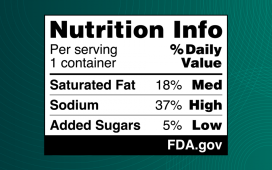Logistics of collecting and transporting feces was recurrent theme impeding stool donation
TUESDAY, June 5, 2018 (HealthDay News) — In the field of fecal microbiota transplantation (FMT), altruism is the main reason people become stool donors, followed by economic compensation and positive feedback from the donation experience, according to a study presented at the 2018 Digestive Disease Week, held from June 2 to 5 in Washington, D.C.
Breanna McSweeney, from the University of Alberta in Edmonton, Canada, and colleagues disseminated a 32-item questionnaire to examine factors that could optimize the stool donor program and improve donor retention. Eight hundred two respondents completed the questionnaire.
The researchers found that altruism was the main reason for being a stool donor (41.7 percent), while 35.2 percent indicated economic compensation as an additional motivator. Economic compensation was more of a motivator for younger participants, students, and U.S. residents, compared with older participants, non-students, and U.K. and Canadian residents. Knowing how FMT helps individuals was more influential than economic compensation for motivating donors. Willingness to receive and donate for FMT was increased among those with a positive attitude toward FMT. Those who were more willing to donate were more knowledgeable about FMT and did not find the process invasive or time consuming. There was a decrease in willingness to donate with required frequency of donation. The logistics of collecting and transporting feces was a recurrent theme impeding stool donation.
“While the concept of stool donation may seem strange, it’s important to remember that [it] has the potential to save someone’s life,” McSweeney said in a statement.
Abstract No. Tu1894
Copyright © 2018 HealthDay. All rights reserved.








